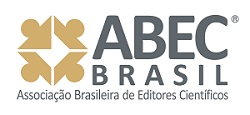In vitro influence of water potential induced by polyethylene glycol on the morphophysiology of wheat
DOI:
https://doi.org/10.5039/agraria.v9i3a3710Keywords:
drought stress, osmotic potential, root system, Triticum aestivum L.Abstract
Plant´s growing depends on several environmental factors that determine their productivity. Drought is a limiting factor for crop production. The aim of this study was the establishment of a protocol for evaluating in vitro, the water stress effect on wheat seedlings. Treatments consisted of simulating the following water potentials (-0.1; -0.2; -0.3 and -0.4 MPa) using PEG - 6000 and the control. The experimental design was completely randomized with five treatments and five repetitions. It was evaluated morphological and physiological parameters such as: relative water content (RWC), membrane stability index (MEI) and the roots morphology by microscopy. As results, we observed that -0.3 MPa (PEG 6000 151.41 g L-1) osmotic potential and the 5 days period provided similar effects of water shortage as that one occurring at green house conditions, which is suitable for simulating this abiotic stress at laboratory conditions.
Downloads
Downloads
Published
How to Cite
Issue
Section
License

This work is licensed under a Creative Commons Attribution-NonCommercial 3.0 Unported License.


